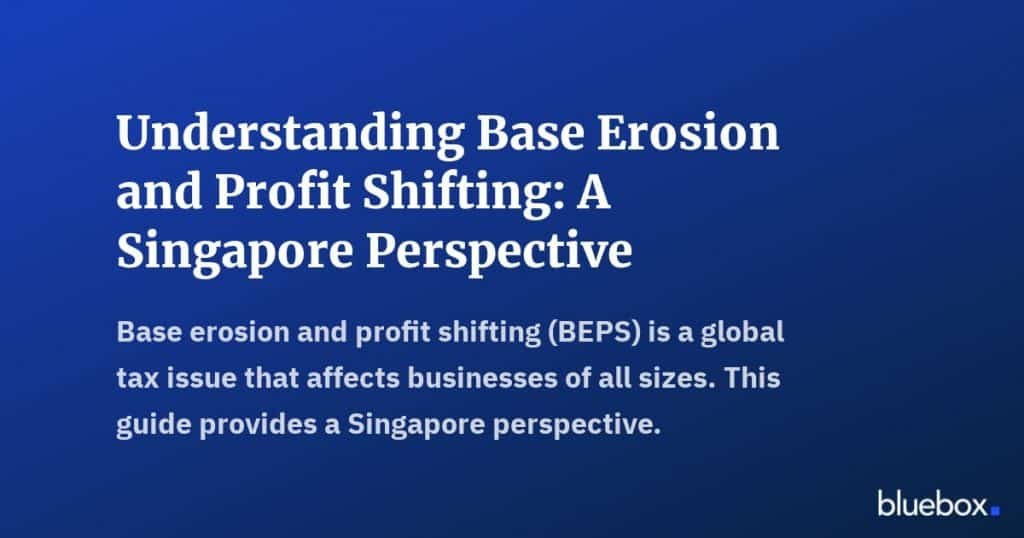As a startup founder or small business owner in Singapore, you may have heard of Base Erosion and Profit Shifting (BEPS) and its potential impact on your business. But what exactly is BEPS and why is it important for Singapore?
BEPS is a tax planning strategy used by multinational companies to shift profits from high-tax countries to low-tax countries, thereby reducing their overall tax bill. This is achieved through a variety of methods, such as transfer pricing, where goods or services are sold between related companies at artificially low or high prices, or the use of tax havens, where profits are parked in countries with low or no tax rates.
The Organisation for Economic Co-operation and Development (OECD) estimates that BEPS results in an annual revenue loss of between $100 billion and $240 billion for governments worldwide. This has led to a global effort to combat BEPS, with the OECD and G20 countries launching the BEPS project in 2013.
Singapore, as a small open economy heavily reliant on foreign investment and trade, is particularly vulnerable to the impact of BEPS. According to a 2018 report by the Inland Revenue Authority of Singapore (IRAS), Singapore is the fourth-largest recipient of foreign direct investment (FDI) in the world, with FDI accounting for over 40% of its gross domestic product (GDP). This makes it an attractive destination for multinational companies looking to establish regional headquarters or conduct cross-border transactions.
However, Singapore’s low tax rates and business-friendly environment have also made it a popular destination for BEPS activities. The IRAS report notes that Singapore has been identified as a “low-risk” jurisdiction for BEPS by the OECD, but acknowledges that there is still a risk of BEPS activities occurring in Singapore.
To address this risk, Singapore has taken a proactive approach to implementing the BEPS recommendations. In 2016, Singapore signed the Multilateral Convention to Implement Tax Treaty Related Measures to Prevent BEPS, which allows for the implementation of the BEPS minimum standards in its tax treaties. Singapore has also implemented a range of domestic measures to combat BEPS, such as transfer pricing rules and country-by-country reporting requirements.
However, the impact of BEPS on Singapore is not just limited to the loss of tax revenue. BEPS can also have broader economic implications, such as the distortion of competition between multinational companies and domestic firms, and the erosion of Singapore’s reputation as a transparent and trustworthy business hub.
As such, it is important for Singapore to continue its efforts to combat BEPS and maintain its position as a leading business hub in the region. This requires a multi-faceted approach, including the implementation of international standards, the strengthening of domestic regulations, and the promotion of transparency and accountability in business practices.
In the words of Minister for Finance, Mr. Heng Swee Keat, “Singapore will continue to play our part in the global fight against BEPS, and work with the international community to promote a fair and sustainable tax system.” As a startup founder or small business owner in Singapore, it is important to stay informed about the potential impact of BEPS on your business, and to take steps to ensure compliance with international and domestic tax regulations.
In conclusion, BEPS is a complex issue with significant implications for Singapore’s economy and business environment. While Singapore has taken steps to address the risk of BEPS activities, it is important for all stakeholders to remain vigilant and proactive in the fight against tax avoidance and evasion. By working together, we can ensure a fair and sustainable tax system that benefits everyone.
